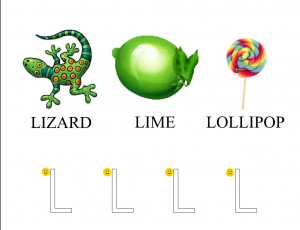 In typical development, usually around the age of 12 months of age, the child discovers a new way to deal with uncertainty. When confronted with a new object, person, or task, he realizes he is feeling uncertainty but is not afraid. He starts to trust a more experienced guide to help him understand the world. He recognizes that he can study unfamiliar objects, persons, or tasks to determine whether to engage with them. He checks in with the guide to decide how to react to the new thing. This is easily seen in an infant when he looks at his mother when a new toy is placed on the floor. Mom smiles at him and the reassured baby reaches out to touch the toy. If mom had frowned or acted scared, the baby would realize that he should be wary or afraid.
In typical development, usually around the age of 12 months of age, the child discovers a new way to deal with uncertainty. When confronted with a new object, person, or task, he realizes he is feeling uncertainty but is not afraid. He starts to trust a more experienced guide to help him understand the world. He recognizes that he can study unfamiliar objects, persons, or tasks to determine whether to engage with them. He checks in with the guide to decide how to react to the new thing. This is easily seen in an infant when he looks at his mother when a new toy is placed on the floor. Mom smiles at him and the reassured baby reaches out to touch the toy. If mom had frowned or acted scared, the baby would realize that he should be wary or afraid.
Our kids on the autism spectrum miss this milestone. Despite the many differences along the autism spectrum, this lack of perspective-borrowing is universal. Teaching our kids this crucial skill is a fundamental component of RDI. It is not easy because by missing this skill, the child learns to react with fear and rigid control of situations, thus severely limiting their ability to learn and interact with others and situations. Continue reading →

 In typical development, usually around the age of 12 months of age, the child discovers a new way to deal with uncertainty. When confronted with a new object, person, or task, he realizes he is feeling uncertainty but is not afraid. He starts to trust a more experienced guide to help him understand the world. He recognizes that he can study unfamiliar objects, persons, or tasks to determine whether to engage with them. He checks in with the guide to decide how to react to the new thing. This is easily seen in an infant when he looks at his mother when a new toy is placed on the floor. Mom smiles at him and the reassured baby reaches out to touch the toy. If mom had frowned or acted scared, the baby would realize that he should be wary or afraid.
In typical development, usually around the age of 12 months of age, the child discovers a new way to deal with uncertainty. When confronted with a new object, person, or task, he realizes he is feeling uncertainty but is not afraid. He starts to trust a more experienced guide to help him understand the world. He recognizes that he can study unfamiliar objects, persons, or tasks to determine whether to engage with them. He checks in with the guide to decide how to react to the new thing. This is easily seen in an infant when he looks at his mother when a new toy is placed on the floor. Mom smiles at him and the reassured baby reaches out to touch the toy. If mom had frowned or acted scared, the baby would realize that he should be wary or afraid.